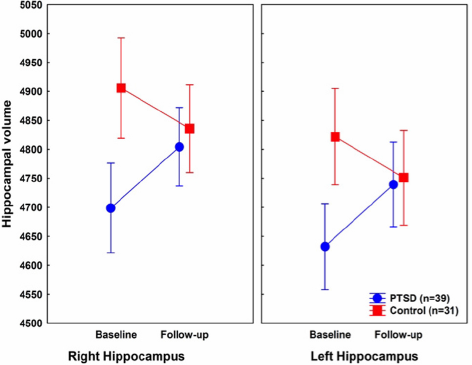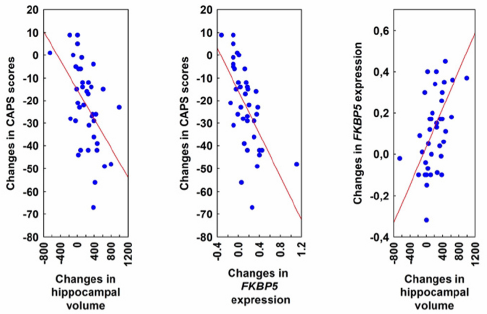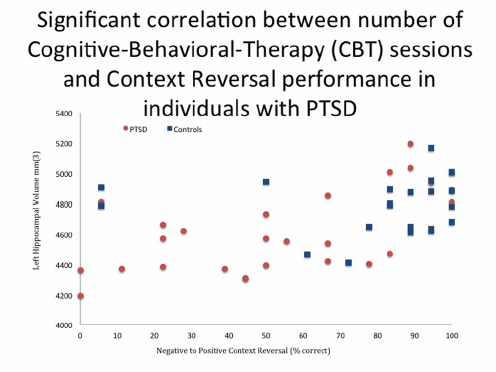Published online by Cambridge University Press: 15 April 2020
Posttraumatic stress disorder (PTSD) is characterized by a reduced expression of FKBP5, a key modulator of the glucocorticoid receptor. Smaller hippocampal volume has also been documented in PTSD. In this study we explored FKBP5 gene expression, brain structure and cognitive flexibility in patients with PTSD before and after cognitive behavioral therapy (CBT)
We measured peripheral FKBP5 RNA, volumes of the hippocampus, amygdala, and medial orbitofrontal cortex and cognitive flexibility in 39 patients with PTSD before and after CBT. The control subjects were 31 trauma-exposed individuals without PTSD who were also assessed twice.
At baseline, patients with PTSD showed lower FKBP5 gene expression and smaller hippocampal and medial orbitofrontal cortex, but not amygdala, volumes relative to control subjects. At follow-up, we found significantly increased FKBP5 expression and increased hippocampal volume in patients with PTSD. At follow-up, patients did not differ from control subjects in hippocampal volume. Improvement in PTSD symptoms was predicted by increased FKBP5 expression and increased hippocampal volume, but the primary predictor was FKBP5 expression. There was a positive correlation between the performance on a partial reversal task which tests cognitive flexibility and treatment responsiveness.
Clinical improvement in individuals with PTSD was associated with increased expression of FKBP5, increased hippocampal volume and better cognitive flexibility. The three variables were positively correlated.



Comments
No Comments have been published for this article.